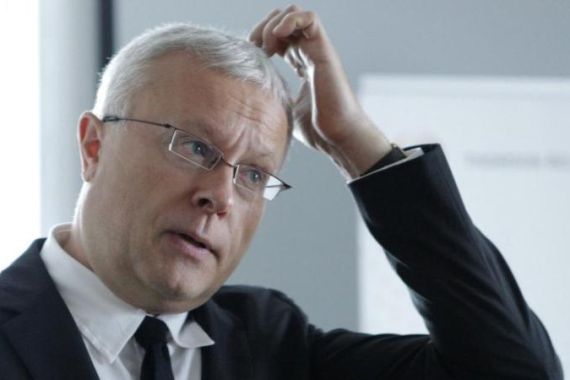What did Boris Johnson discuss with Alexander Lebedev?
How an answer to a parliamentary question may lead to an unfolding of a political scandal.

There is an emerging potential scandal in the United Kingdom. It may not go anywhere, but it also could become very important.
In essence, the issue is whether Prime Minister Boris Johnson, as foreign secretary, discussed government business with a former KGB spy without either officials being present or reporting the conversation to officials afterwards.
Here dates may be important. On March 4, 2018, there were nerve agent poisonings in the historic English city of Salisbury.
The British government blamed Russia for the attack. The following month, between April 27 and 29, the then Foreign Secretary (and current Prime Minister) Boris Johnson attended a party in Italy hosted by Evgeny Lebedev, the businessman and media figure. This party was immediately after a confidential meeting of NATO foreign ministers where Russia and security were discussed.
On April 29, 2018, Johnson was spotted at San Francesco d’Assisi airport in Italy without either his security detail or the benefit of a good night’s sleep. What had actually happened that weekend and who Johnson met at the party has been a constant media and political puzzle since.
In particular, one question has been whether he had met Alexander Lebedev, formerly a senior KGB intelligence officer and Evgeny’s father, and if so, whether security issues were discussed without officials being present or a proper note being made.
If security issues had been discussed between a British foreign secretary and a former Russian spy in the wake of the Salisbury poisonings and straight after a NATO discussion then that would be a very serious matter indeed. But since 2018 there has been a lack of clarity and various denials about what had actually happened.
Then, last month, there was a public admission from Johnson. During the domestic political crisis leading to his imminent departure as prime minister, he happened to be appearing before the “liaison committee” of senior members of parliament where he was asked about a range of issues.
At this hearing, Johnson admitted that he had indeed met Alexander Lebedev at the party without officials being present. Following this revelation, Johnson was asked to reply in writing to the question: “Whether you met with Alexander Lebedev on 28 April 2018 without officials, and whether officials were subsequently informed of the meeting?”
Last week his response was published. It was extraordinary, though it was carefully worded. Its essence was: Johnson confirmed he had met Alexander Lebedev; government business may have been discussed; officials were not present; and officials were not subsequently informed of the meeting. Johnson sought to frame the meeting as not being “pre-arranged” though he did not say it was unexpected.
The admission that government business may have been discussed was made in a curious manner. Johnson’s exact but evasive phrase was “[a]s far as I am aware, no Government business was discussed”.
This falls far short of an actual denial. And it is unsatisfactory, because Johnson would presumably know what was said in a conversation to which he was a party. It would be expected he would have complete knowledge of what was said.
Had Johnson been in a position to make an unqualified denial that government business was discussed, he would have done so. But for some reason he could not. Perhaps he cannot recall what he discussed. Or perhaps he does not feel confident that information would not emerge that would contradict an outright denial.
The current prime minister has only a few weeks left in office, but he is under investigation by a parliamentary committee for misleading the Commons on other matters. He was not therefore in the position where he could afford to be caught out in his answer to the liaison committee.
The strained wording of his response therefore must have seemed to him the only course open to him. If nothing comes to light, he is safe. But if something does come to light, he can seek to hide behind the “[a]s far as I am aware” proviso.
It may be that this political matter goes no further and is forgotten as Johnson departs office in September and a new prime minister is put in place. But there is something not quite right about the situation and Johnson’s account of what happened is incomplete and inadequate.
In the event further information does emerge, it may prompt a scandal that can overshadow the many other problems of his premiership. For in the aftermath of the Salisbury poisonings and within hours of a NATO foreign ministers’ meeting, a British foreign secretary should not have been discussing government business with a former KGB intelligence officer without officials present and without notifying officials afterwards.
And it is still not clear whether that happened or not.
The views expressed in this article are the author’s own and do not necessarily reflect Al Jazeera’s editorial stance.
